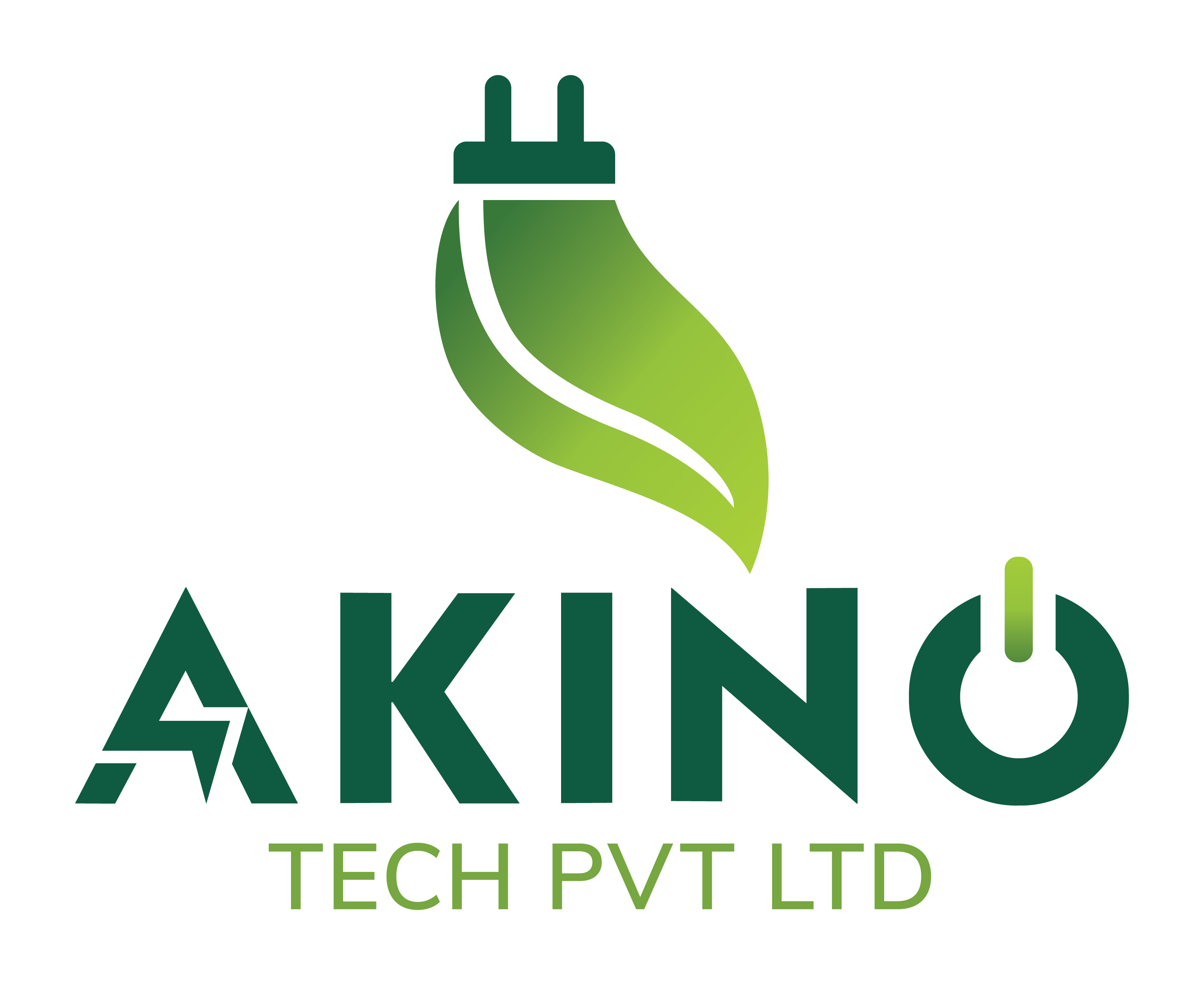Find EV EVSE course
Lithium-ion battery market at your city
Business opportunities for lithium-ion batteries in Howrah include battery pack assembly for electric vehicles (EVs), energy storage systems (ESS) for renewable energy, and lithium battery wholesaling and distribution to supply growing demand from various sectors. Become a wholesaler to supply batteries to local businesses and individuals for residential, commercial, and EV-related needs.
The best online electric vehicle (EV) course provide "Academy of EV Technology (AEVT)" for working professionals include the Certificate Programme on eMobility. For business owners, the best electric vehicle (EV) online courses are those focused on business management and practical skills for the EV market, such as the AEVT "EV Technology and Business Management" or "Lithium-ion Battery Assembly Line for battery production" that provide a solid foundation in EV technology, business, and management.
For a battery company, EV dealers, sellers the best online courses focus on advanced battery technology, such as the "Lithium-ion Battery Assembly Line for battery production" which covers electrochemical cells, battery materials, and industrial applications, or courses on Battery Management Systems (BMS) offered by "Academy of EV Technology (AEVT)".
Solar Energy and Lithium Batteries Courses
Solar Energy and Lithium Batteries Courses at Institute of Solar Technology (https://istindia.org ) and Academy of EV Technology (https://aevt.org ) cover practical assembly, business management, and system design, with options for online and offline learning, and cover topics from basic cell selection to complex pack assembly and ROI calculation.Institute of Solar Technology (https://istindia.org ) and Academy of EV Technology (https://aevt.org ) offer specialized courses for both technicians and entrepreneurs interested in the growing solar and battery industry.
Ev Charging Station Course
Business/Entrepreneurial Courses:Guide individuals on how to start and manage an EV charging station business, covering market trends, business opportunities, and necessary infrastructure.
Ev Charging Station Course
Advance Courses Available
Solar Application Li-ion Battery Manufacturing Course , Focuses on the practical setup of battery assembly lines, covering cell selection, testing, module assembly, and business planning such as costing and investment.PV Technology and Business Management (Online), Targets individuals interested in starting businesses in the solar sector, covering technical aspects and business management.
Solar Project Design Master Course (Online), Aimed at engineers, focusing on designing solar projects.
Li-ion Battery Pack Assembly (Online), Provides detailed instructions on how to assemble lithium-ion battery packs.
Solar Power Electric Vehicle Charger
Electric vehicles are the mode of transportation of the future. As electric vehicles are getting more and more popular, it has become critical to implement solar charging for electric cars and bikes.
Solar charging stations for electric vehicles have emerged as one of the best ways to reduce India’s dependence on fossil fuels for powering various modes of transport. We anticipate that in the coming years, nearly everyone who owns an Electric vehicle system will install a solar charging station in their home. This will necessitate a fundamental shift in how we think about refueling our cars, as well as a natural evolution of our energy infrastructure. The battery rating of an EV indicates the amount of power that it can store, which indicates how much power is required to fully charge it. And common EV battery sizes 100KWh to 200KWh. Solar-powered EV charging stations are the solution to bring that percentage down to zero. Not only is it beneficial for the environment, but it is also a major benefit for EV owners by reducing electricity bill.
Institute of Solar Technology offering a course on Solar EV Charging Station Designs, planning, costing, ROI, vendor selection and services as a starting point for EV charging installation projects. Case study of EV charging station business model, govt Policies and guidelines.
This course will deliver from basics of Solar Energy, PV Module technology, site selection for solar EV charger to EV Charging Station equipment, different types of Charger, connectors, charging station development and all other parts/ equipment selection, On-grid solar charging station, Off-grid solar charging station design, Vehicle-to-Grid (V2G) technology, workplace charging station, Understanding Finance Basics, GoI Guide line & Business Model, vendor selection, Understanding Finance Basics & Business Model.
The government, with the help of BIS,
ARAI, EESL and other bodies, has already released technical specifications on charging stations and some of the original
specifications like the AC-001 and the DC-001 have already been developed and charging stations have been deployed at select
locations. The newer guidelines require the charging stations to be equipped with multi standard chargers, viz. AC Type 2, the
CCS and the CHADEMO, in addition to the lower power AC and DC-001.
Solar Power EV Charging Station
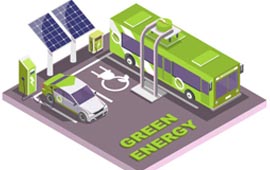
Solar Power Electric Vehicle Charging Station
Course Overview:
Solar charging stations for electric vehicles have emerged as one of the best ways to reduce India’s dependence on fossil fuels. Nearly everyone who owns an Electric vehicle will install a solar charging station in their home. Solar-powered EV charging stations are the solution to bring that percentage down to zero.Course Outcome:
Solar Power EV Charging Station (Design and Development) Program is a master program that takes an Engineer, designe engineer, installer from site assessment, all the way through power-up and pinpointing. Installers who take this knowledge will have all the information needed to efficiently and accurately assess, design and install charging stations.Today's Offer: FLAT 15% discount for online Session
2023 to 2029 Electric Vehicle Charging Station Market
In the EV sector, charging stations have proven to be the best category or opportunity. The charging stations are one of the networked business areas of electric vehicles. Currently, most EV customers are hesitant to buy electric vehicles due to the lack of charging stations in India. Numerous entrepreneurs are looking to shop for charging stations in their respective locations.
With EV growth, the demand for charging stations is rising, leading to intense competition among charging station providers.
Overall, the Electric Vehicle Charging Station Market presents new opportunities for growth and innovation, and the report offers valuable insights into upcoming trends and future scenarios for the industry. The market report presents a detailed evaluation of the market's influential factors, including drivers, trends, restraints, key segments, competitive landscape, and other significant elements that are contributing significantly to the market's growth.
Electric Vehicles new Opportunities
Businesses are increasingly going digital to break the cycle of escalating pollution and limit the usage of natural resources, which raises CO2 emissions in our environment. Currently, our country is riding the EV wave. EV Platforms are widely seen in the economy, and most people interact with them every day. EV technologies, and their ecosystems of complementors, are a manifestation of this shift in the way firms are organizing to create greater value for end-users.
EV & EVSE MSME Development Knowledge
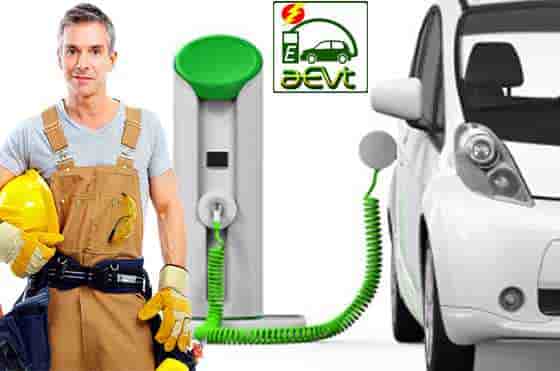
Course Overview:
EV EVSE Business Management for Entrepreneurs:India to become a manufacturing hub for electric vehicles in five years. Indian EV industry to represent Rs 500 billion opportunity by 2025.
This Techno Commercial knowledge: Throughout this session, AEVT bridges the needs of startups
Course Outcome:
Candidate can understand the technology from basic of EV to EVSE equipment like Lithium-ion battery, Battery pack assembly process, EV Motor, Charger, charging station development and all others parts/ equipment's calculation, selection, building a Legal Foundation, Understanding Finance Basics, Business Planning and Fundraising.Today's Offer: FLAT 15% discount for online Session
Solar charging stations for electric vehicles have emerged as one of the best ways to reduce India’s dependence on fossil fuels for powering various modes of transport. We anticipate that in the coming years, nearly everyone who owns an Electric vehicle system will install a solar charging station in their home. This will necessitate a fundamental shift in how we think about refueling our cars, as well as a natural evolution of our energy infrastructure. The battery rating of an EV indicates the amount of power that it can store, which indicates how much power is required to fully charge it. And common EV battery sizes 100KWh to 200KWh. Solar-powered EV charging stations are the solution to bring that percentage down to zero. Not only is it beneficial for the environment, but it is also a major benefit for EV owners by reducing electricity bill.
The Indian government has concluded that no license is required to build charging infrastructure as long as it meets the 'Ministry of Power' standards. As a result, there is no need for a special permission to transmit, distribute, or exchange power for the purpose of charging electric car batteries.
State governments have even announced the mandatory installation of charging stations in commercial and residential complexes, as well as a particular percentage reserved for electric vehicles in such complexes,to pave the way for adoption of the EV eco system.
Solar Power EV Charging Station

Solar Power Electric Vehicle Charging Station
Course Overview:
Solar charging stations for electric vehicles have emerged as one of the best ways to reduce India’s dependence on fossil fuels. Nearly everyone who owns an Electric vehicle will install a solar charging station in their home. Solar-powered EV charging stations are the solution to bring that percentage down to zero.Course Outcome:
Solar Power EV Charging Station (Design and Development) Program is a master program that takes an Engineer, designe engineer, installer from site assessment, all the way through power-up and pinpointing. Installers who take this knowledge will have all the information needed to efficiently and accurately assess, design and install charging stations.Today's Offer: FLAT 15% discount for online Session
In 'white gold' rush, India kick-starts talks with lithium-rich nations
Jammu and Kashmir's reserve might be present with a large amount of lithium, but the current amount is insufficient to match with the world's top reserves of Lithium. For India to become self-reliant in the field of solar energy storage and EV manufacturing without being dependent on China for EV battery supplies, it is important to own more such Lithium reserves and enhance its presence in overseas lithium mines. Solar lighting system operates on electricity from batteries, charged through the use of solar photovoltaic panels. It is composed of a battery, solar panel, LED lamp, and charge controller. The stored energy is collected in a rechargeable Lithium-ion battery used later to produce lighting at night. The rapid infrastructure development in all sectors of India is pushing local solar light manufacturers to compete and deliver innovative solar lighting products at low prices to increase their presence in the market.
Lithium-ion Battery pack assembly
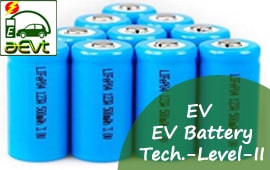
Techno Commercial knowledge to setup Lithium-ion battery assembly line for solar application, energy storage and EV 2W, 3W etc.
Practical skills - cell sellection, cell IR testing, cell balancing, charge discharge testing, module & pack assembling, enclosure selection, all machinery selection, assembly line planning and layout drawing, costing of assembly line, working capital, investment, ROI, business projection making, different product design.
Course Outcome:
Get the knowledge of Lithium-ion cell parameters, Cell Chemistry, Cell Architecture, Thermal Management, BMS and battery pack assembly technical and commercial detail before setup assembly line.
Today's Offer: FLAT 15% discount for online session
MINISTRY OF ROAD TRANSPORT AND HIGHWAYS
NOTIFICATION
New Delhi, the 11th November, 2025
All E-rickshaw or E-cart manufactured on or after the 1st day of April, 2027 shall be fitted with lithium-ion battery packs and the performance requirements of the same shall be as per AIS-156 (Part 1) and (Part 2), as amended from time to time.”.
Online courses for working professionals
The major guidelines proposed by this department - The minimum requirement for installation of a public charging station must include exclusive transformer, 33/11 kV lines, proper civil works, and appropriate liquid cooled cables. Moreover, the public charging stations must be tested by respective authorities before operation.
The availability of suitable charging sites is great concerned. The estimate of EV supply hardware essential at assorted kinds of areas is proposed dependent on a charging technique. Both convenience and physical concerns should be considered for effective charging stations.
Keeping the above mentioned opportunities in the EV market, AEVT has designed Entrepreneurship Development Programme on Electric Vehicle Charging Station so as to provide overview of the EV ecosystem and the systematic approach on planning, and execution of EV charging infrastructure.
Solar Power EV Charging Station

Solar Power Electric Vehicle Charging Station
Course Overview:
Solar charging stations for electric vehicles have emerged as one of the best ways to reduce India’s dependence on fossil fuels. Nearly everyone who owns an Electric vehicle will install a solar charging station in their home. Solar-powered EV charging stations are the solution to bring that percentage down to zero.Course Outcome:
Solar Power EV Charging Station (Design and Development) Program is a master program that takes an Engineer, designe engineer, installer from site assessment, all the way through power-up and pinpointing. Installers who take this knowledge will have all the information needed to efficiently and accurately assess, design and install charging stations.Today's Offer: FLAT 15% discount for online Session
In 'white gold' rush, India kick-starts talks with lithium-rich nations
Jammu and Kashmir's reserve might be present with a large amount of lithium, but the current amount is insufficient to match with the world's top reserves of Lithium. For India to become self-reliant in the field of solar energy storage and EV manufacturing without being dependent on China for EV battery supplies, it is important to own more such Lithium reserves and enhance its presence in overseas lithium mines. Solar lighting system operates on electricity from batteries, charged through the use of solar photovoltaic panels. It is composed of a battery, solar panel, LED lamp, and charge controller. The stored energy is collected in a rechargeable Lithium-ion battery used later to produce lighting at night. The rapid infrastructure development in all sectors of India is pushing local solar light manufacturers to compete and deliver innovative solar lighting products at low prices to increase their presence in the market.
Lithium-ion Battery pack assembly

Techno Commercial knowledge to setup Lithium-ion battery assembly line for solar application, energy storage and EV 2W, 3W etc.
Practical skills - cell sellection, cell IR testing, cell balancing, charge discharge testing, module & pack assembling, enclosure selection, all machinery selection, assembly line planning and layout drawing, costing of assembly line, working capital, investment, ROI, business projection making, different product design.
Course Outcome:
Get the knowledge of Lithium-ion cell parameters, Cell Chemistry, Cell Architecture, Thermal Management, BMS and battery pack assembly technical and commercial detail before setup assembly line.
Today's Offer: FLAT 15% discount for online session
MINISTRY OF ROAD TRANSPORT AND HIGHWAYS
NOTIFICATION
New Delhi, the 11th November, 2025
All E-rickshaw or E-cart manufactured on or after the 1st day of April, 2027 shall be fitted with lithium-ion battery packs and the performance requirements of the same shall be as per AIS-156 (Part 1) and (Part 2), as amended from time to time.”.
EV Lithium-ion Battery Repair and Maintenance
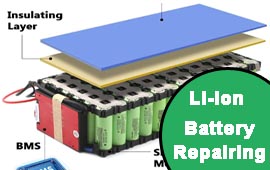
Course Overview:
Electric cars are becoming increasingly popular, and with that comes the need for high-quality battery repair centers. By repairing batteries, they are able to extend the lifespan of batteries considerably.The average electric vehicle lithium-ion battery can retain up to 70% of its charging capacity after being removed. The business proposition for second-life batteries is therefore intuitive The second life market looks set to boom in the coming years as EV uptake grows.
Course Outcome:
Get the knowledge of Lithium-ion cell parameters, Cell Chemistry, Cell Architecture, Thermal Management, BMS and battery pack technical and commercial detail before start Repair shop.Today's Offer: FLAT 15% discount for online class
Quick Inquiry Form
Class Time / Slot
Online class Available slot for working professionals
Available slot: December month
| Slot | IST Time | Status |
| 1 | 7:30 AM - 9:00 AM 4th Batch (Last Batch) | |
| 2 | 10:30 AM - 12:00 Noon | |
| 3 | 3:00PM - 4:30PM 3rd Batch | |
| 4 | 8:00 PM - 9:30PM 1st & 2nd Batch |
Next batch Class will start from January - 2026
| Slot | IST Time | Status |
| 1 | 7:30 AM - 9:00 AM | |
| 2 | 10:30 AM - 12:00 Noon | |
| 3 | 3:00PM - 4:30PM | |
| 4 | 8:00 PM - 9:30PM |
| Slot | IST | WAT | SAST | EAT | KST |
| 1 | 7:30 AM | 3 AM | 4 AM | 5 AM | 10 AM |
| 2 | 10:30 AM | 6 AM | 7 AM | 8 AM | 1 PM |
| 3 | 3 PM | 10:30 AM | 11:30 AM | 12:30 PM | 5:30 PM |
| 4 | 8 PM | 3:30 PM | 4:30 PM | 5:30 PM | 10:30 PM |
4 Slot 4 batch each slot
Admission Going on for
EV Technology and Business Management - Techno Commercial Training (online)
Today's 15% Discount From:
January - 2026

Course Duration: 2 + 1 Months
EV Battery Pack Assembly Line Training (online)
Today's 15% Discount From:
January - 2026

Course Duration: 2 + 1 Months
Solar Power EV Charging Station (online)
Today's 15% Discount From:
January - 2026

Course Duration: 2 + 1 Months
Visit our Google Map












View all Job








